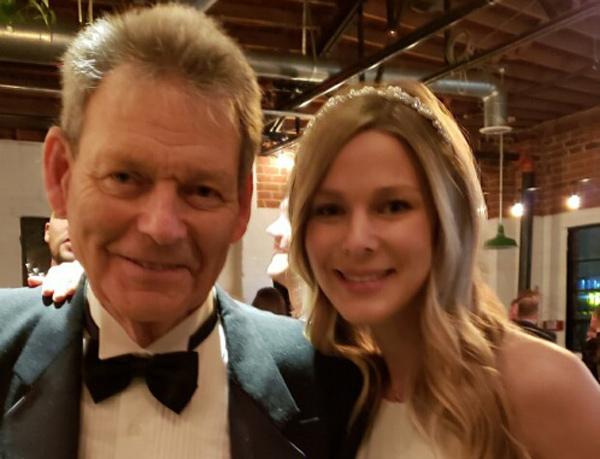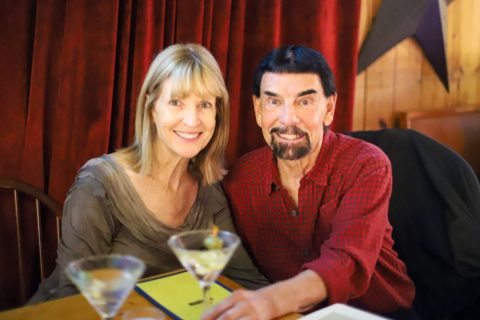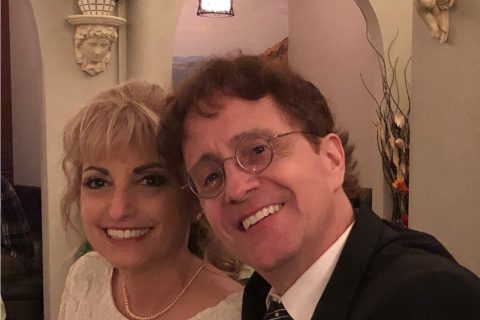Canadian Golfer Hits ‘Hole-in-One’ with Mesothelioma Clinical Trials

Fact Checked | Written by: Tim Povtak | Last Update: 06/16/2025 | 5 Min Read
Three years after being diagnosed with malignant pleural mesothelioma, Ron Green proudly walked his youngest daughter down the aisle in a beautiful wedding ceremony in Charlotte, North Carolina.
He beat the odds.
The traditional father-daughter dance later that day was icing on the cake.
Once an accomplished golfer and now a mesothelioma survivor, Green had just hit his figurative hole-in-one.
“Her wedding was very emotional, for both of us,” Green told The Mesothelioma Center at Asbestos.com. “After my diagnosis, neither one of us thought that day would ever happen.”
Green, 72, credits great medical care, his Christian faith and good luck for keeping the cancer in check for now. He maintains a slower but satisfying life at home in Naples, Florida.
“Just because they say it’s incurable — they originally had given me six to 11 months to live — doesn’t mean you stop living,” Green said. “It doesn’t have to mean an immediate death sentence. I’ve been fortunate.”
Keytruda Worked Well in Clinical Trial
Green was diagnosed late in 2016, spending almost a year receiving Keytruda (pembrolizumab) at a clinical trial in Toronto.
Keytruda has shown impressive effectiveness treating pleural mesothelioma, but only for a small percentage of patients.
Green was one of the fortunate few. The trial was stopped for a general lack of success, but the drug worked well for him.
At the same time, on his own each night, he was taking Rick Simpson Oil, a potent cannabis oil with especially high levels of THC.
“I made everyone aware of what I was taking on my own. They said it was fine, but ‘just don’t bring it into the hospital,’” he said.
His tumor burden shrunk by almost 50%.
“I was a real mess when first diagnosed. Hardly a will to live. A nurse told me later that the oncologist didn’t think I’d last 30 days,” he said. “But I started Keytruda, and almost immediately things changed for the better. You could feel it. Something worked for me.”

Try our new clinical trials search tool to find active trials near you. Get help enrolling today.
Find a Clinical TrialSecond Trial at National Institutes of Health
By the end of 2018, though, scans showed the tumor was growing again, despite the radiation treatments he was getting.
Green was referred to another clinical trial at the National Institutes of Health in Bethesda, Maryland.
He was one of the fortunate few again as the combination of chemotherapy with anetumab ravtansine worked well for him, shrinking the tumors considerably.
Green’s care is coordinated today between the NIH and the Florida Cancer Center in Naples. His blood work is checked every month, with CT scans every 12 weeks. His next scan is scheduled for the end of February.
He takes zinc for building his immune system and turmeric for anti-inflammatory issues.
Side Effects Can Be a Trade-Off
Much of the time, Green uses a cane, which helps with the neuropathy and a lack of balance that he attributes to the platinum-based chemotherapy and the immunotherapy from the last clinical trial.
“I’ll take that trade-off because it stopped the tumor,” he said. “For now, I’m doing well. We drove up for the wedding in November and had a great time.”
Green lives with his girlfriend, who still likes to golf, limiting his participation mostly to riding in the cart and offering pointers to improve her game.
“I’ve taken enough lessons in my life to be able to offer a few tips,” he said with a laugh. “Sure, I miss golfing. I miss a lot of things, but I’m pretty happy overall. I had 69 years of excellent health before this. I can’t complain.”
Green owned his own manufacturing business in Canada, where he was born and raised. He has dual citizenship in both countries.
Representing Canada in Senior Golf
As part of the Canadian Seniors Golf Association, Green was selected eight times for the prestigious national team that played annually in the Devonshire Cup Tournament, matched against the United States and Great Britain.
His last Devonshire Cup was at the Yeamans Hall Golf Club near Charleston, South Carolina, in September 2016, less than two months before he was diagnosed with pleural mesothelioma.
“I knew something was wrong then, a cough that was different from anything I ever had,” he said. “Doctors first thought I just had pneumonia. But I had an idea what it might be. I figured it would be my last tournament.”
Diagnosis Was No Surprise
In the late 1960s, while still in school, Green worked for 14 months in a factory owned by Johns Manville, a prominent manufacturer of asbestos products.
“It was not something I worried about, but it stayed in the back of my mind, so I wasn’t caught totally off guard with the diagnosis,” he said. “It just took 48 years before the effects finally showed up.”
Green stays busy these days, driving to his local YMCA regularly to participate in a LIVESTRONG Foundation program for cancer survivors.
He participates in The Mesothelioma Center’s support group, sharing his story in hopes of helping others. He still talks regularly with one mesothelioma patient he met in Toronto, often offering much-needed encouragement.
“I just try and surround myself with positive people. Not that I don’t have sad days, but I don’t dwell on them,” he said. “I’m sure the doctors expect the tumor one day to start growing again, but for now, I try and stay positive. I’m a Christian. I’ve got a lot more to look forward to.”





